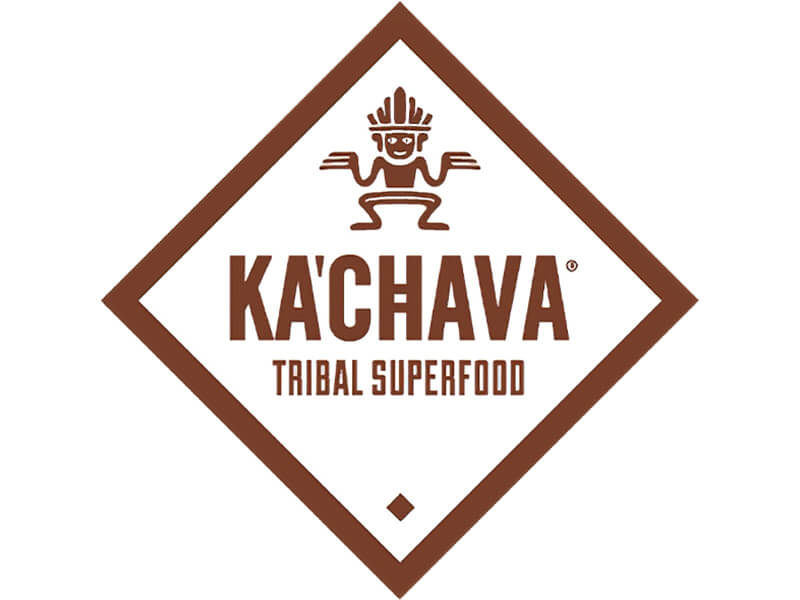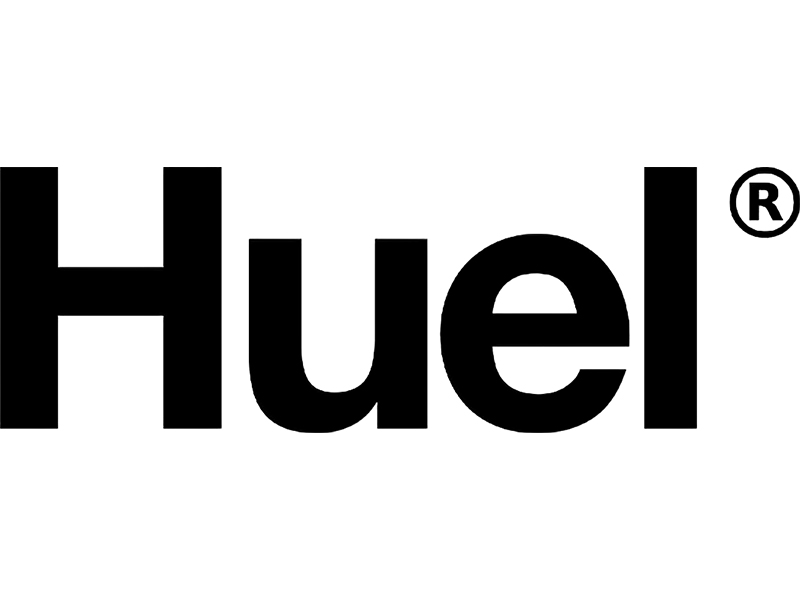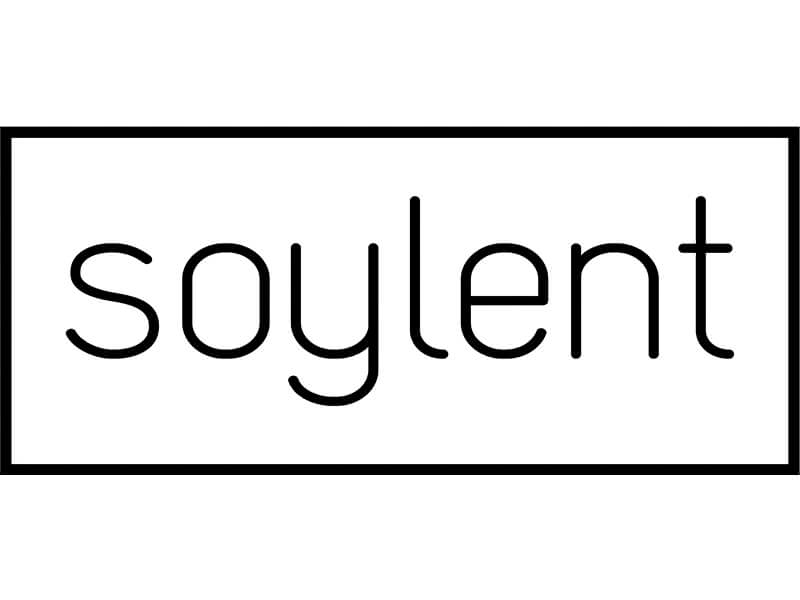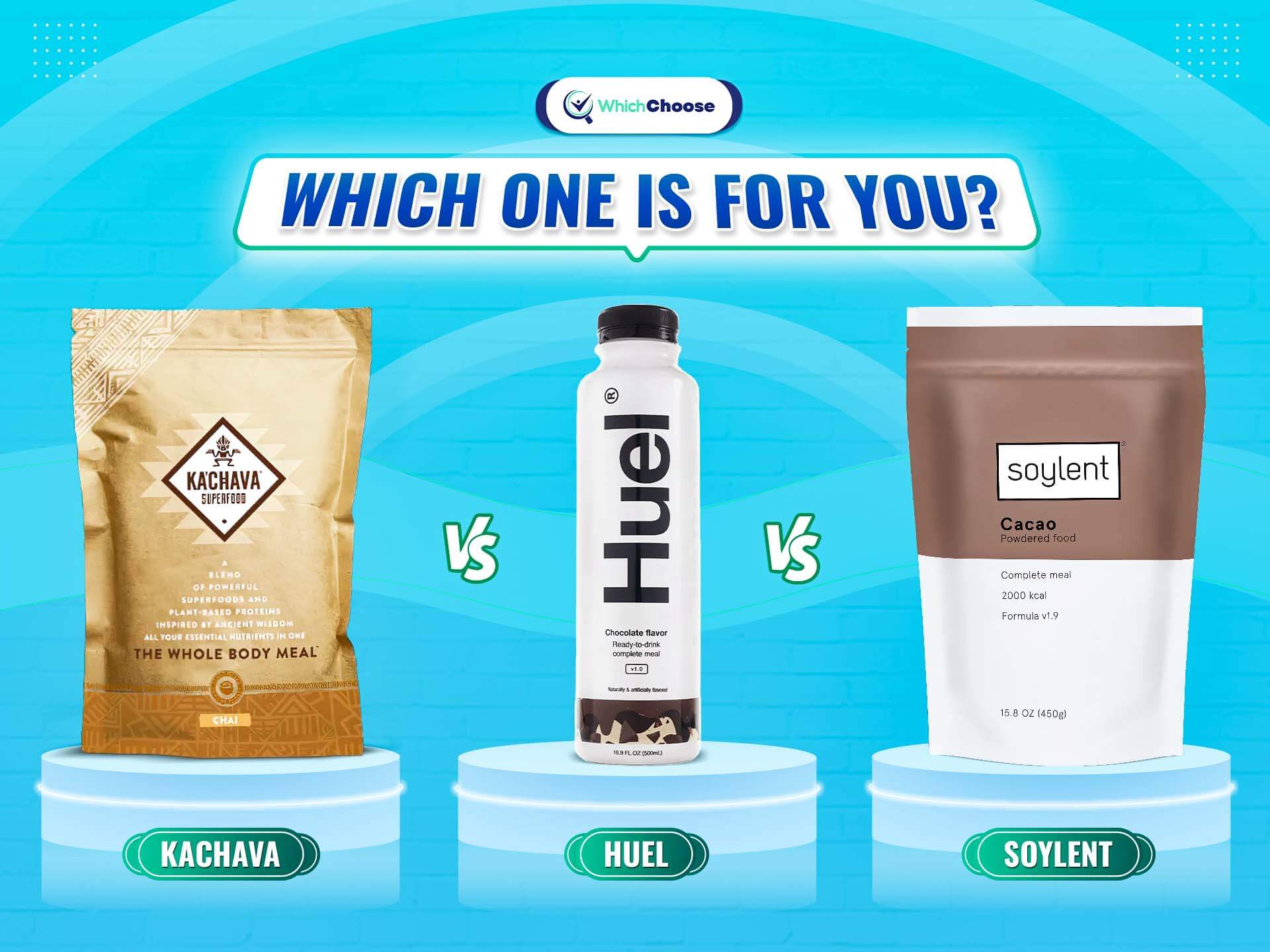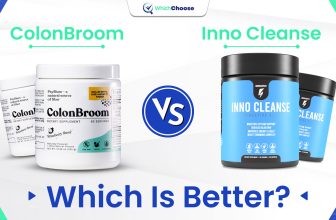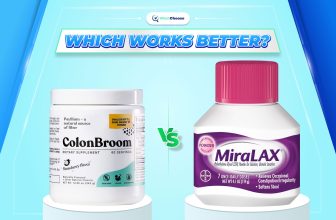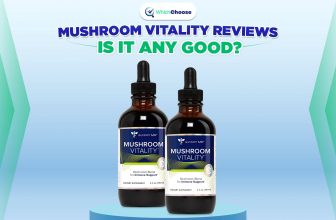Table of Contents
This post contains affiliate links. We earn an affiliate commission when you click our links to purchase products. It has no added cost to you.
KaChava, Huel, and Soylent are incredible meal replacements and deliver on their promise of providing users with a healthy meal alternative. So, which supplement suits your health and needs? Come and check out the KaChava vs Huel vs Soylent comparison with WhichChoose to see which one is best for you.
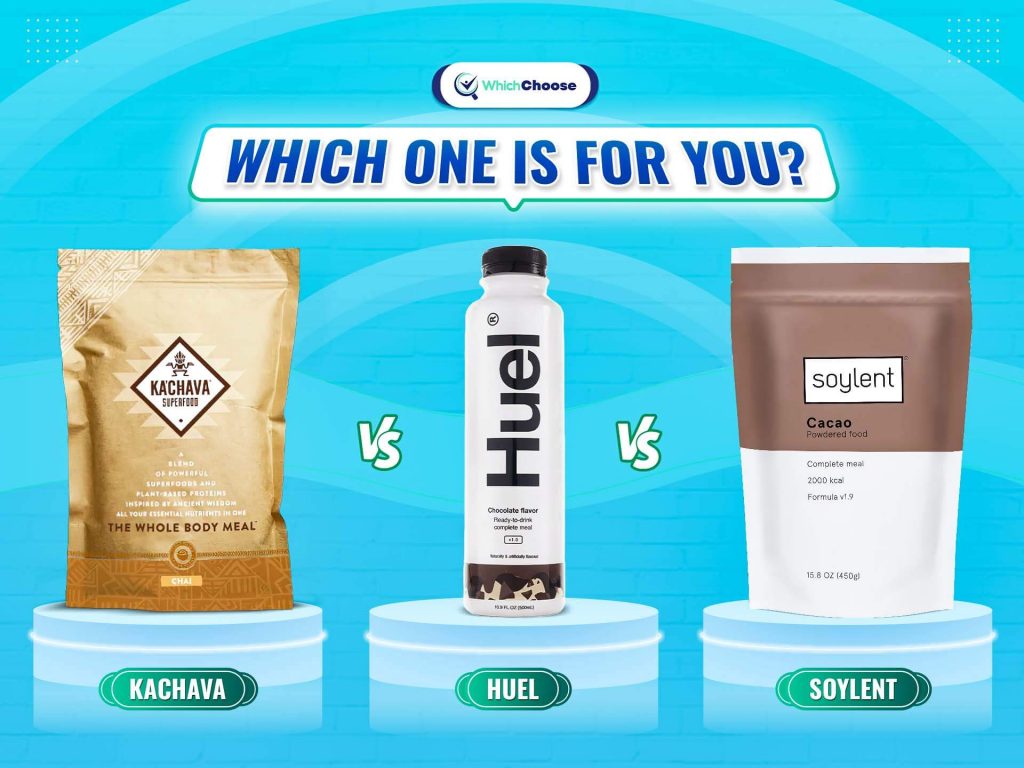
KaChava Vs Huel Vs Soylent: Overview
KaChava Chocolate.
KaChava Vanilla.
People need the additional intake as a healthy form with rich nutritional value.
Huel Black Edition.
Users want to lose weight.
Soylent Ready-to-drink Creamy Chocolate.
1.1. KaChava
KaChava is an all-in-one protein supplement created from superfoods filled with probiotics, antioxidants, minerals, vitamins, and adaptogens that aid in boosting your mental and physical health. What makes this brand different from other meal replacements is that it steers clear of any artificial sweeteners, flavors, colors, or cheap fillers. Moreover, this protein supplement[1] contains natural ingredients, mainly plant-based protein[2] sources: amaranth, brown rice, quinoa, etc.
Here are some main products of KaChava:
Dairy-free, gluten-free, and soy-free.
Vanilla flavor.
Replace a full meal.
Soy-free, dairy-free, and gluten-free.
Vegan.
Replace a full meal.
Vegan.
Match flavor.
Replace a full meal.
1.2. Huel
Huel is a nutritional powdered food brand in ready-made drinks, meals, etc. The idea behind Huel is fulfilling all the body’s nutritional needs if you were to change to a diet exclusively based on the drink product. Here are some main products of Huel:
Gluten-free.
27 essential minerals, vitamins and the balance of protein, fiber, carbohydrates, fat, and phytonutrients.
Artificial sweeteners-free and gluten-free.
27 essential minerals, vitamins and the balance of phytonutrients, protein, fat, fiber, and carbohydrates.
1.3. Soylent
Soylent is a natural meal replacement supplement available as a powder or a ready-made drink. It claims its meal replacement supplements offer nutrition with a balanced ratio of protein, fat, carbohydrates, 28 vitamins, and omega-3 fatty acids. Moreover, Soylent also claims the drinks and powder supply sustained energy, increase metabolism, enhance hydration and support the immune system. Here are some main products of Soylent:
A rich, chocolatey taste.
Keep you full and focused.
Perfect for breakfast or lunch.
Keeps you full and focused throughout your day.
Kachava Vs Huel Vs Soylent: Nutrition And Ingredients
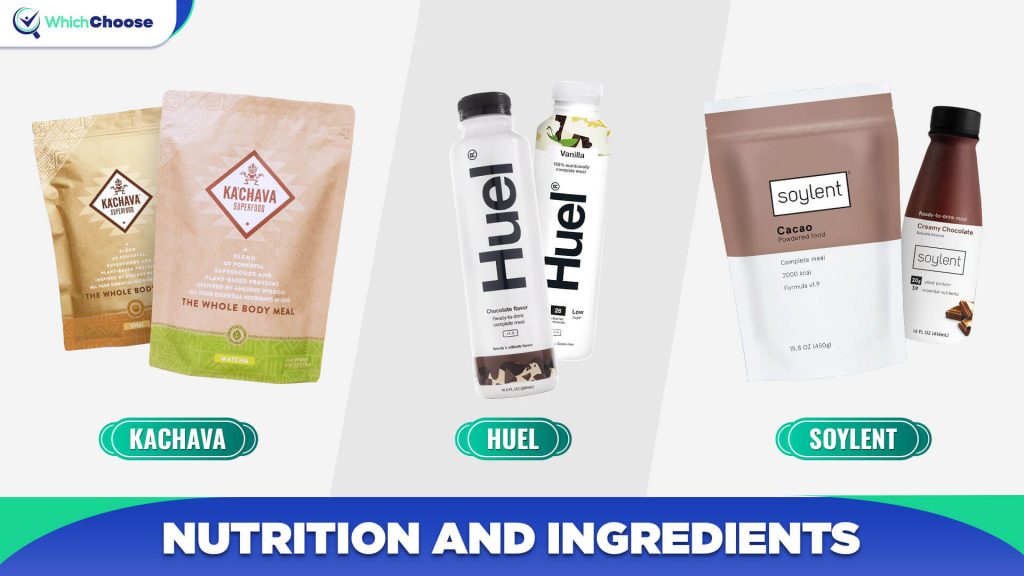
Here are nutrition information and ingredients of KaChava, Huel, and Soylent, as follows:
Huel Black Edition Powder: 25g carbohydrates, 400 calories, 18g fat, 5g sugars, 40g protein.
Soylent Powder: 42g carbs, 400 calories, 19g fat, 20g protein, 16g sugar.
Three meal replacement shakes are gluten-free and include various beneficial vitamins and minerals. Compared to Huel and Soylent, KaChava contains less fat and calories.
Kachava Vs Huel Vs Soylent: Who Are They Suitable For?
| KaChava | Huel | Soylent | |
| Who should use them? |
Because KaChava contains more nutritional ingredients than other meal replacements[4], it is suitable for users of all ages and activity levels. Moreover, this product is best for users who need the additional absorption as a healthy form with high nutritional value. |
Huel is suitable for consumers who want convenient, nutritious, and reasonable meals. This product is particularly popular with users who desire to drop weight[5], better their overall health and gain muscle. |
Soylent is best for users who want all the nutritional needs in one beverage without having to think of preparing separate meals. |
Kachava Vs Huel Vs Soylent: How To Prepare
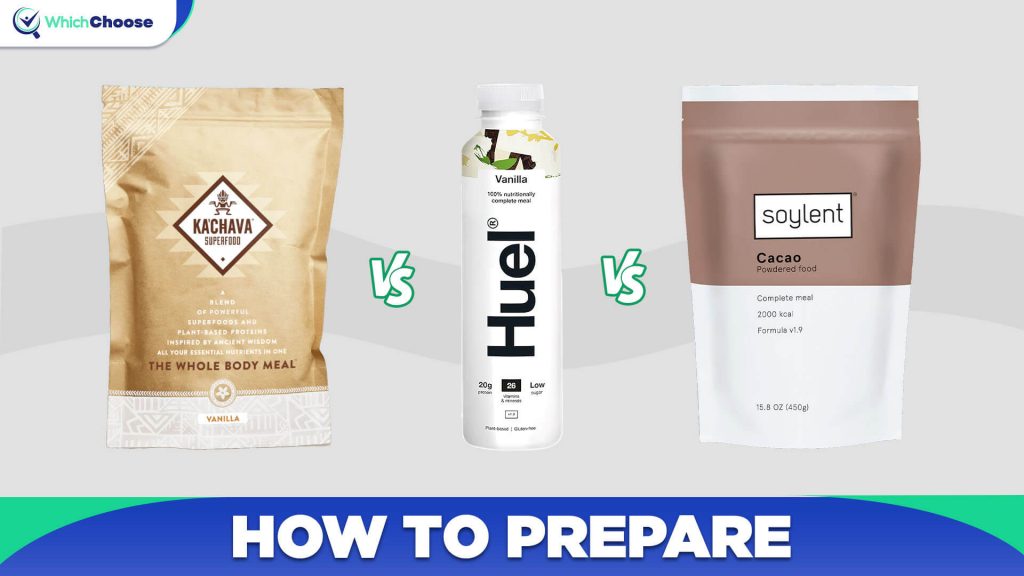
| KaChava | Huel | Soylent | |
| How to prepare? |
|
You can mix the Huel powder with milk or water. Afterward, you can drink it or add it to a smoothie or other recipe. | You can mix Soylent powder with water and shake it. After that, you can drink it as is or add fruit or ice for a more refreshing drink. |
Kachava Vs Huel Vs Soylent: How Much Do They Cost?
5.1. KaChava
The KaChava price is $69.95 for a 30-serving bag; however, if you subscribe, the cost drops to $59.95.
Replace a full meal.
Soy-free, dairy-free, and gluten-free.
5.2. Huel
Here are the prices of Huel products as follows:
- Huel’s Ready to Drink: $56.11 per bottle.
- Huel Black Edition: $94.44 per two bags.
5.3. Soylent
Here are the prices of Soylent including:
- Soylent’s Ready To Drink: $45 per bottle.
- Soylent’s Powder: $69.50 per bag.
Kachava Vs Huel Vs Soylent: Customer Reviews
Meal replacement products are famous for being an acquired taste. They’ve got better over the years; however, with a different taste, your body is accustomed to a low-density, high-calorie intake all at once. Before purchasing a suitable product, you can refer to some customer reviews about KaChava, Huel, and Soylent:
KaChava’s customer reviews
Huel’s customer reviews
Soylent’s customer reviews
When selecting between KaChava, Huel, and Soylent, it is vital to consider your lifestyles, goals, and dietary needs. Based on nutrition and ingredient information, KaChava is the best protein shake because it contains various beneficial ingredients for overall health. Moreover, this product is suitable for every consumer, even vegetarians and vegans. WhichChoose hopes you enjoyed the Kachava vs Huel vs Soylent comparison before making an informed decision.
5+ Sources:
- [1] Cintineo HP, Arent MA, Antonio J, Arent SM. Effects of Protein Supplementation on Performance and Recovery in Resistance and Endurance Training. Front Nutr. 2018 Sep 11, https://www.ncbi.nlm.nih.gov/pmc/articles/PMC6142015/
- [2] Kamangar F, Emadi A. Vitamin and mineral supplements: do we really need them? Int J Prev Med. 2012 Mar, https://www.ncbi.nlm.nih.gov/pmc/articles/PMC3309636/
- [3] Hertzler SR, Lieblein-Boff JC, Weiler M, Allgeier C. Plant Proteins: Assessing Their Nutritional Quality and Effects on Health and Physical Function. Nutrients. 2020 Nov 30, https://www.ncbi.nlm.nih.gov/pmc/articles/PMC7760812/
- [4] Guo X, Xu Y, He H, Cai H, Zhang J, Li Y, Yan X, Zhang M, Zhang N, Maddela RL, Nicodemus-Johnson J, Ma G. Effects of a Meal Replacement on Body Composition and Metabolic Parameters among Subjects with Overweight or Obesity. J Obes. 2018, https://www.ncbi.nlm.nih.gov/pmc/articles/PMC6327254/
- [5] Maston G, Franklin J, Gibson AA, Manson E, Hocking S, Sainsbury A, Markovic TP. Attitudes and Approaches to Use of Meal Replacement Products among Healthcare Professionals in Management of Excess Weight. Behav Sci (Basel), https://www.ncbi.nlm.nih.gov/pmc/articles/PMC7551264/
WhichChoose is the website products and services review that helps users in the world to find what the best is and shop easily.


